第343章
Accordingly, when I forbid other Bacchanal rioters, I permit these Jews to gather themselves together, according to the customs and laws of their forefathers, and to persist therein.It will be therefore good for you, that if you have made any decree against these our friends and confederates, to abrogate the same, by reason of their virtue and kind disposition towards us."9.Now after Caius was slain, when Marcus Antonius and Publius Dolabella were consuls, they both assembled the senate, and introduced Hyrcanus's ambassadors into it, and discoursed of what they desired, and made a league of friendship with them.The senate also decreed to grant them all they desired.I add the decree itself, that those who read the present work may have ready by them a demonstration of the truth of what we say.The decree was this:
10."The decree of the senate, copied out of the treasury, from the public tables belonging to the quaestors, when Quintus Rutilius and Caius Cornelius were quaestors, and taken out of the second table of the first class, on the third day before the Ides of April, in the temple of Concord.There were present at the writing of this decree, Lucius Calpurnius Piso of the Menenian tribe, Servius Papinins Potitus of the Lemonian tribe, Caius Caninius Rebilius of the Terentine tribe, Publius Tidetius, Lucius Apulinus, the son of Lucius, of the Sergian tribe, Flavius, the son of Lucius, of the Lemonian tribe, Publius Platins, the son of Publius, of the Papyrian tribe, Marcus Acilius, the son of Marcus, of the Mecian tribe, Lucius Erucius, the son of Lucius, of the Stellatine tribe, Mareils Quintus Plancillus, the son of Marcus, of the Pollian tribe, and Publius Serius.Publius Dolabella and Marcus Antonius, the consuls, made this reference to the senate, that as to those things which, by the decree of the senate, Caius Caesar had adjudged about the Jews, and yet had not hitherto that decree been brought into the treasury, it is our will, as it is also the desire of Publius Dolabella and Marcus Antonius, our consuls, to have these decrees put into the public tables, and brought to the city quaestors, that they may take care to have them put upon the double tables.
This was done before the fifth of the Ides of February, in the temple of Concord.Now the ambassadors from Hyrcanus the high priest were these: Lysimachus, the son of Pausanias, Alexander, the son of Theodorus, Patroclus, the son of Chereas, and Jonathan the, son of Onias."11.Hyrcanus sent also one of these ambassadors to Dolabella, who was then the prefect of Asia, and desired him to dismiss the Jews from military services, and to preserve to them the customs of their forefathers, and to permit them to live according to them.
And when Dolabella had received Hyrcanus's letter, without any further deliberation, he sent an epistle to all the Asiatics, and particularly to the city of the Ephesians, the metropolis of Asia, about the Jews; a copy of which epistle here follows:
12."When Artermon was prytanis, on the first day of the month Leneon, Dolabella, imperator, to the senate, and magistrates, and people of the Ephesians, sendeth greeting.Alexander, the son of Theodorus, the ambassador of Hyrcanus, the son of Alexander, the high priest and ethnarch of the Jews, appeared before me, to show that his countrymen could not go into their armies, because they are not allowed to bear arms or to travel on the sabbath days, nor there to procure themselves those sorts of food which they have been used to eat from the times of their forefathers; - I do therefore grant them a freedom from going into the army, as the former prefects have done, and permit them to use the customs of their forefathers, in assembling together for sacred and religious purposes, as their law requires, and for collecting oblations necessary for sacrifices; and my will is, that you write this to the several cities under your jurisdiction."13.And these were the concessions that Dolabella made to our nation when Hyrcanus sent an embassage to him.But Lucius the consul's decree ran thus: "I have at my tribunal set these Jews, who are citizens of Rome, and follow the Jewish religious rites, and yet live at Ephesus, free from going into the army, on account of the superstition they are under.This was done before the twelfth of the calends of October, when Lucius Lentulus and Caius Marcellus were consuls, in the presence of Titus Appius Balgus, the son of Titus, and lieutenant of the Horatian tribe;of Titus Tongins, the son of Titus, of the Crustumine tribe; of Quintus Resius, the son of Quintus; of Titus Pompeius Longinus, the son of Titus; of Catus Servilius, the son of Caius, of the Terentine tribe; of Bracchus the military tribune; of Publius Lucius Gallus, the son of Publius, of the Veturian tribe; of Caius Sentins, the son of Caius, of the Sabbatine tribe; of Titus Atilius Bulbus, the son of Titus, lieutenant and vice-praetor to the magistrates, senate, and people of the Ephesians, sendeth greeting.Lucius Lentulus the consul freed the Jews that are in Asia from going into the armies, at my intercession for them; and when I had made the same petition some time afterward to Phanius the imperator, and to Lucius Antonius the vice-quaestor, Iobtained that privilege of them also; and my will is, that you take care that no one give them any disturbance."14.The decree of the Delians."The answer of the praetors, when Beotus was archon, on the twentieth day of the month Thargeleon.